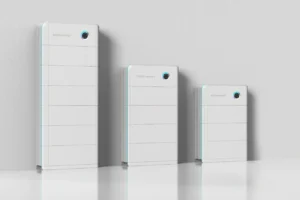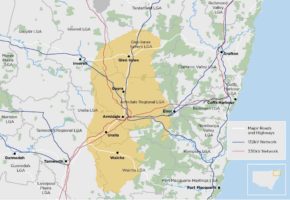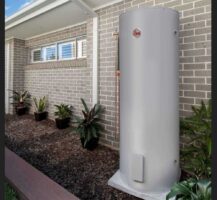The South Australia government has decided to fast-track its switch to 100 per cent renewable energy by contracting with Adelaide-based SIMEC ZEN Energy while it waits for the Aurora 150MW solar tower and molten salt storage project to be built.
The contract will underpin SIMEC Zen Energy’s plans to build 1 gigawatt of solar, storage and demand management to power the Whyalla Steelworks, which is switching to renewables and expects to cut its costs by 40 per cent in doing so.
“This is the beginning of a journey that will see SIMEC Zen Energy redefine the energy landscape of Australia, bringing down costs dramatically and making globally competitive energy a key advantage for Australian industry,” chairman Sanjeev Gupta said in a statement.
Gupta, the UK-based billionaire investor, bought the Whyalla steel assets – along with OneSteel’s operations near Melbourne, Sydney and Newcastle – after eyeing an opportunity to switch to green energy, save on energy costs and underpin expansion.
As part of that deal, Gupta’s GFG Alliance also emerged as the major shareholder in Zen Energy, formerly chaired by Professor Ross Garnaut, which earlier this month obtained its electricity retail licence, as exclusively reported by RenewEconomy.
That has enable it to sign a deal with the South Australia government to deliver 80 per cent of its electricity needs in 2018, and 100 per cent from 2019, all of which will come from renewables, and assisted with demand management.
SIMEC Zen will supply that green power through its own renewable investments, but will also contract with other suppliers in the meantime.
The South Australia government electricity needs – to power hospitals, schools, rail and other government operations – equate to around 500 gigawatt hours, or the equivalent of nearly 200MW of wind and solar.
The State Government will be SIMEC Zen Energy’s first electricity customer and is expected to help it attract other customers to its “base-load renewables” product, bringing much-needed competition to the state’s retail electricity market and putting further downward pressure on prices.
The government currently contracts through Alinta, Origin Energy and Simply Energy.
Premier Jay Weatherill said the SIMEC Zen contract will be “competitive”, suggesting it was in and around the $75/MWh offered by US-based SolarReserve, which is to build what will be the world’s biggest solar tower and molten salt storage facility near Port Augusta.
SIMEC Zen will also help the government with improved demand management practices to further improve the reliability of the grid by reducing system load during periods of high demand.
It will provide the State Government with ongoing retail services for five years from November, 2020, during which time the whole of the State Government’s load will be supplied by the Aurora solar thermal plant at Port Augusta.
Koutsantonis said SIMEC Zen Energy would be able to provide large energy users with power at better prices than we have been seeing from the established providers.
“This contract will help underpin SIMEC Zen Energy’s investment in South Australia and add new competition to the retail market, putting downward pressure on power prices that will benefit all South Australian,” Koutsantonis said in a statement.
“Earlier this year, we used our power supply requirements to underwrite the entry of the Port Augusta solar thermal plant to the market, which will put downward pressure on power prices for all South Australians, but also create hundreds of jobs for locals in the Upper Spencer Gulf,” Weatherill said.
The timing of the contract is important, as the state will go to the polls in March.
Weatherill and Koutsantonis have have said the state’s economic future lies in the further development of its renewable energy resources, which already contribute more than 50 per cent of the state’s demand, and the development of storage options.
The Tesla big battery has already been opened, another battery at Wattle Point wind farm is planned for early next year, the Lincoln Gap wind farm plans its own battery storage, and Zen Energy is looking at both battery storage and pumped hydro. Two other pumped hydro stations are also mooted.

The GFG Alliance investment in Whyalla steel and its focus on renewables to guarantee lower costs and its future, and a similar strategy by Queensland zinc refiner Sun Metals, has helped turn the argument against renewables on its head.
Gupta said Australia deserves a competitive energy industry.
“This will drive jobs and growth, it will encourage the private sector to invest and entrepreneurs to take more risk, not only in South Australia but across the country.”








